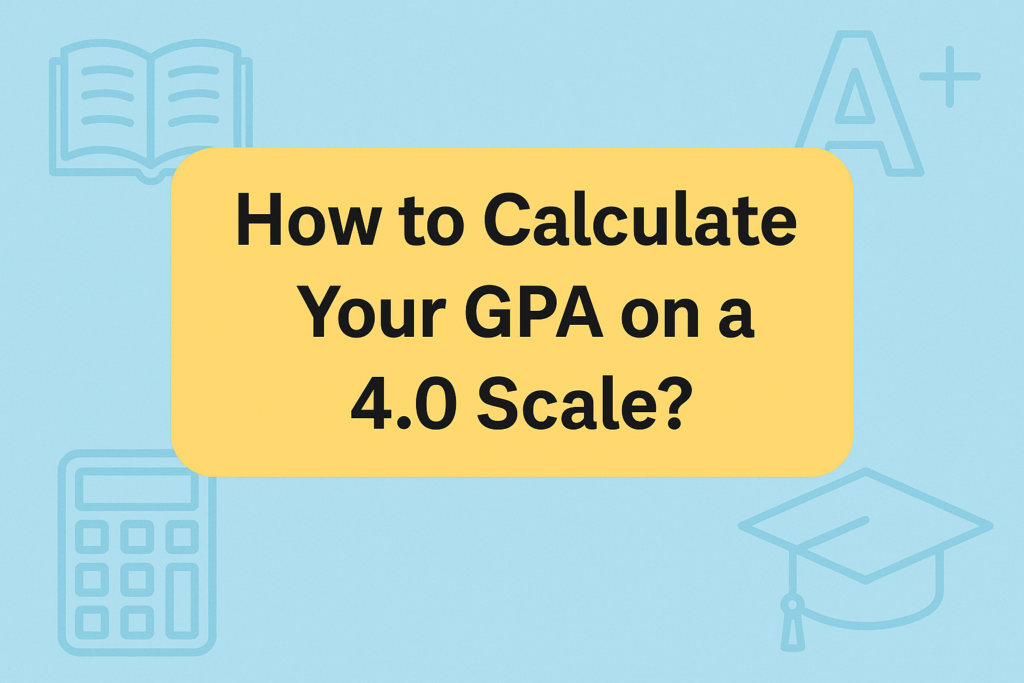BCPM (Biology, Chemistry, Physics, Math) Calculator
If you’re applying to med school, you’ve probably heard people talk about your BCPM GPA—also called your science GPA. But what exactly counts toward it? And how do you calculate it without going cross-eyed?
You’re not alone.
BCPM stands for Biology, Chemistry, Physics, and Math. It’s a key part of your academic profile when you apply through AMCAS, and it’s often the first thing admissions committees look at. So yeah—it matters.
That’s where this GPA calculator comes in.
Just plug in your courses, grades, and credit hours. It’ll do the math and give you a clear breakdown of your science GPA—without the headache. No spreadsheets, no guesswork.
If you’re not sure whether a class should count toward BCPM, don’t stress. We’ve included some common examples and tips below.
👉 Scroll down to try the BCPM GPA Calculator now.
BCPM GPA Calculator
Semester 1
Your BCPM GPA:
✅ What Is a BCPM Calculator?
If you’re applying to med school, you’ve probably heard the term BCPM GPA thrown around a lot. It stands for Biology, Chemistry, Physics, and Math GPA—basically, your science GPA. And yes, it matters. A lot.
Med schools don’t just look at your overall college GPA. They focus heavily on your performance in science-heavy subjects. That’s where your BCPM GPA comes in—and this calculator helps you see exactly where you stand.
It’s designed for pre-med students and college students who want a clear snapshot of their academic strengths in the eyes of admissions committees. Whether you’re building your AMCAS application or just trying to track your progress, this tool gives you insight into your science GPA without the usual spreadsheet stress.
It works whether you’re early in your undergrad, prepping for your final year, or simply keeping tabs on a tough semester GPA.
If you’re not sure what a BCPM course counts as, don’t worry—we’ve got some helpful notes and examples below. No fluff. Just the info you need.
This isn’t guesswork. It’s your med school prep—simplified.
🎓 Who Can Use This BCPM Calculator?
This BCPM GPA calculator is built for anyone on the pre-med path—whether you’re just starting college or already knee-deep in upper-level science classes.
If you’re planning to apply through AMCAS or other med school application systems, this tool is for you. It helps you focus on the numbers that matter most to admissions committees—your science GPA.
You don’t have to be a straight-A student or a math whiz to use it.
In fact, this was made for students who don’t feel like wrestling with spreadsheets or complex GPA formulas.
👉 College students in biology, chemistry, physics, or math programs? Yep, this will help.
👉 Post-back students retaking science courses to boost their BCPM? Absolutely.
👉 High-achieving high schoolers previewing what med schools expect? Smart move—you’re welcome here, too.
If you’ve taken science-heavy courses and want to know where you stand academically, this calculator gives you a clear, focused view of your BCPM GPA—nothing more, nothing less.
No sign-ups. No confusion. Just a simple tool for future doctors who want clarity.
🧮 How to Use This BCPM Calculator (Step-by-Step Guide)
If you’re figuring out your science GPA for the first time—take a breath. You’re not alone, and you don’t need to be a spreadsheet wizard to get it done.
Just follow these steps, and you’ll have your BCPM GPA in no time. No stress. No formulas flying at your face.
✅ Step 1: Only Add Your Science Classes
We’re talking Biology, Chemistry, Physics, and Math. That’s it.
Even if you crushed English or aced History, those don’t count here. BCPM is all about the science side of your transcript.
✅ Step 2: Fill in Course Names
You can write “Organic Chem I,” “Calc II,” or just “Physics” — this is more for keeping things tidy. The name doesn’t affect the score, but it helps you keep track of what’s what.
✅ Step 3: Choose the Subject
Pick the correct category: Bio, Chem, Physics, or Math. This is important — it tells the calculator which courses should count toward your science GPA.
✅ Step 4: Select the Grade
Choose the letter grade you earned.
The calculator turns that into a number (like A = 4.0 or B+ = 3.3), so you don’t have to.
✅ Step 5: Add the Credit Hours
How many credits was the class worth? 3? 4? Sometimes even 5?
It should be on your transcript. If you’re unsure, check—credit weight really matters here.
✅ Step 6: Add More (If You Need To)
Click + Add Course to toss in another class.
Click + Add Semester to separate different terms.
There’s no limit. Add what you need.
✅ Step 7: Hit “Calculate BCPM GPA”
That’s it. Once you’re done, hit the button.
The calculator does the math using this formula:
BCPM GPA = Total Grade Points ÷ Total Credit Hours
🧲 Real-Life Example (Not Just Numbers)
Let’s say your science classes look like this:
| Course | Subject | Grade | GPA Value | Credits | Grade Points |
|---|---|---|---|---|---|
| General Biology | Biology | A | 4.0 | 4 | 16.0 |
| Organic Chemistry | Chemistry | B+ | 3.3 | 3 | 9.9 |
| Physics I | Physics | A- | 3.7 | 4 | 14.8 |
| Calculus II | Math | B | 3.0 | 3 | 9.0 |
| Total | 14 | 49.7 | |||
Now apply the formula:
BCPM GPA = 49.7 ÷ 14 = 3.55
That’s the number you’d report on your med school application. And yeah, it matters.
💡 Little Tip Before You Go
If you’re not sure if a class counts as BCPM, that’s totally normal.
If it’s listed as Biology, Chemistry, Physics, or Math on your transcript — it probably counts.
Still unsure? Ask your pre-health advisor. Or check the AMCAS Course Classification Guide. It’s detailed, but it helps.
🎓 BCPM Calculator FAQs
1. What is BCPM GPA, and why does it matter for med school?
2. How do I calculate my BCPM GPA for AMCAS applications?
3. What courses count toward my BCPM GPA?
4. Do psychology or statistics courses count in BCPM GPA?
5. Is my BCPM GPA more critical than my overall GPA?
6. Can I raise my BCPM GPA with post-back or summer courses?
7. Does AMCAS calculate my BCPM GPA automatically?
8. What is a competitive BCPM GPA for top med schools?
9. How is BCPM GPA different from cumulative GPA or science GPA?
10. Do repeated or retaken courses affect my BCPM GPA on AMCAS?
GPA Calculator Suite
Access our comprehensive suite of GPA calculators
GPA Calculator
Calculate your GPA easily
College GPA Calculator
Calculate your college GPA easily
High School GPA Calculator
Calculate your high school GPA easily
Semester GPA Calculator
Calculate your Semester GPA easily
Cumulative GPA Calculator
Calculate your Cumulative GPA easily
Final Grade Calculator
Calculate your Final Grade easily
Weighted Grade Calculator
Calculate your Weighted Grade easily
EZ Grader – Easy Grade Calculator
Calculate your Easy Grade Calculator easily
CGPA to GPA Converter
Convert CGPA to GPA easily
CGPA to Percentage Converter
Convert CGPA to Percentage easily
CGPA to Marks Converter
Convert CGPA to Marks easily
Grade to GPA Converter
Convert Grade to GPA easily
Marks to Percentage Converter
Convert Marks to Percentage easily
Percentage To CGPA Converter
Convert Percentage To CGPA easily
Percentage to GPA Converter
Convert Percentage to GPA easily
Percentage To SGPA Converter
Convert Percentage To SGPA easily
SGPA to CGPA Converter
Convert SGPA to CGPA easily
SGPA to Percentage Converter
Convert SGPA to Percentage easily
GPA Calculator: The Ultimate Guides to Calculate & Improve Your Grades
How Is My Final High School GPA Calculated?
How Is My Final High School GPA Calculated? What Is a Final GPA in High School? Your final high school GPA is a cumulative number that reflects how you performed across all your classes from freshman through senior year. It’s more than just a semester average. It’s the total snapshot. Colleges use this number to […]
How to Calculate Your GPA on a 4.0 Scale?
How to Calculate Your GPA on a 4.0 Scale? What is GPA and Why Does It Matter? GPA stands for Grade Point Average. It sums up your academic performance into one number. If you’re aiming for college, scholarships, or even some jobs, this number quietly sits on the top of your transcript, silently speaking for […]
How do I calculate my overall High School GPA?
How do I calculate my overall High School GPA? Understanding the Basics of High School GPA What Is GPA and Why Does It Matter? Grade Point Average (GPA) is the most common way schools summarize your academic performance. It takes all your grades and converts them into a single number. That number is used by […]




